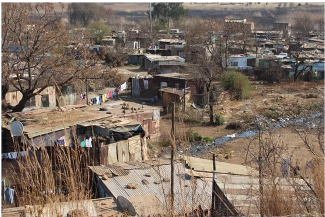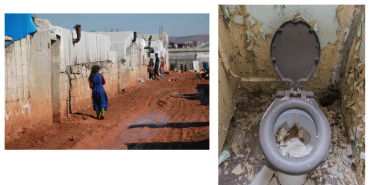
In a small village in rural Nigeria, 13-year-old Salama wakes up before dawn to start her day. She lives with her family in a small hut with no toilet. Her parents, like many others, cannot afford to build one. Salama’s daily routine begins with a walk to the nearby bush, where she and her siblings relieve themselves. The stench of human waste and the risk of diseases linger, but it’s a reality they’ve grown accustomed to.
As she walks to school, Salama worries about using the school’s dilapidated toilet. The doors don’t lock, and the smell is overpowering. She often holds her bladder until she returns home, risking infections. Salama’s story is not unique; millions of Nigerian children face similar sanitation challenges. Imagine waking up every morning to the stench of decay, the decomposed smell of human waste lingering in the air. For millions of Nigerians, this is the reality they are faced with. Behind the vibrant culture and resilience of Africa’s largest nation lies a festering sanitation crisis, claiming lives and undermining human dignity. Nigeria’s sanitation emergency is a ticking time bomb, hidden in plain sight that needs to be detonated as soon as possible.
Sanitation is a fundamental aspect of human health and dignity and it continues to remain a pressing concern in Nigeria and many third world countries. The country’s sanitation crisis affects many people, compromising their well-being, security, economic productivity, and environmental sustainability.
This blog post examines the current state of sanitation in Nigeria, highlighting challenges and potential solutions to the sanitation issues in Nigeria.

According to UNICEF, approximately 60 million Nigerians lack access to basic drinking water, and 80 million people do not have improved sanitation facilities. This has disturbing consequences, particularly for children under five, with over 70,000 deaths annually due to contaminated water and poor sanitation leading to diseases like diarrhea, typhoid fever and dysentery. Research from the World Bank shows that 39% of households in rural areas lack access to at least basic water supply, while only half of this population have access to improved sanitation.
Women and girls are not left out because they often bear the burden of water collection, typically often walking long distances, which has negative effects on their well-being, school attendance, and increased risk of harassment and gender-based violence.
According to UNICEF, women and girls spend an estimated 152 million hours annually collecting water. This time investment restricts their participation in education, economic activities, and healthcare thereby continuing cycles of poverty for them and by extension, their families. Additionally, the physical strain of water collection can lead to health issues, such as back and joint pain, and increased risk of accidents. Inadequate sanitation facilities worsen the challenges faced by rural Nigerians. Open defecation contaminates water sources, spreading diseases and deteriorating the lives of many.
To curb these sanitation challenges in Nigeria, key actions are required. It is important to carry out urgent and collective actions. Governments at all levels are enjoined to prioritize sanitation infrastructure developments and foster implementation of policies. Government can also invest in sanitation solutions and services for the public in order to curb open defecation. The private sector and civil society organizations can support this cause by implementing community led initiatives which can improve the knowledge and adoption of improved sanitation practices amongst grassroot and rural community members.
With these actions, slowly and surely, issues of sanitation will be subdued in Nigeria.
References

